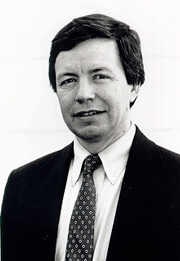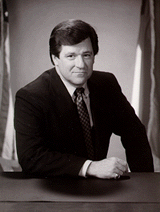 |

 |
|
By Paul Lee The Front Page, Senior Staff Writer
 Raleigh, North Carolina--Three separate votes in the North Carolina General Assembly last week
have advanced causes supported by the lesbian, gay, bisexual and transgender
(LGBT) community, said M.K. Cullen, executive director of Equality North
Carolina.
Raleigh, North Carolina--Three separate votes in the North Carolina General Assembly last week
have advanced causes supported by the lesbian, gay, bisexual and transgender
(LGBT) community, said M.K. Cullen, executive director of Equality North
Carolina.
On Tuesday, the House Judiciary I committee passed the Matthew Shepard Memorial Act (HB 884), the bill introduced in the General Assembly that would expand hate crimes to include crimes based on bias against sexual orientation, age, gender and disability. North Carolina's current hate crimes law has enhanced penalties for crimes targeting a person because of race, color, religion, nationality or country of origin. Luebke's bill would also toughen those penalties.
Cullen acknowledged the significance of the votes, but realized there is much more work to be done. "In some ways its a monumental victory, and it's the first baby step," she said. The lobbyist for LGBT causes said uphill battles remain for these three measures to pass both houses of the legislature. Opposition from conservatives remains strong. "I would not be remiss to say that there's a level of ignorance and homophobia that we face in the General Assembly as these bills are brought out on the floor," Cullen said. Cullen said the Equality Begins at Home series of events across the state in March helped gain support for the measures. On March 23, more than 120 individuals lobbied the legislature in support of these bills. Background: The Hate Crimes measure, which now goes to the full House, increases the penalty to at least a felony for someone who commits a crime against another because the victim is a member of the protected groups. The hate crime statute now applies to race, religion or national origin.
Matthew Shepard, after whom the bill is named, was, before moving to Wyoming, a North Carolina resident. John Rustin director of government relations for the conservative N.C. Family Policy Council called Shepard's death a "brutal and inexcusable crime." But the homosexual acts that would be covered by the hate crimes law are illegal in North Carolina, he said. "This in not about crime. It is not about hate," he said. "It is about legitimizing the homosexual lifestyle by legally recognizing 'sexual orientation' as a protected classification under the law." Dick Adams, whose son was killed in a Winston Salem robbery, protested that the bill would devalue his son's slaying because he was not in a protected group. "Dead is dead," Adams said. "We have laws that cover every citizen who is a victim of violent crimes." Johnny Henderson of the Christian Action League said individual homosexuals are guaranteed the equal protections of all citizens and do not need the status of a protected group.
"The word 'special' is really a misnomer," she said. "This is not special legislation, this is needed legislation. "When I leave this room, I will not feel safe, nor will I be safe," said Joyner, who told the committee she is a lesbian. According to a report in the Raleigh News & Observer (4/21/99), Joyner also cautioned the committee that saying all crime is a hate crime is a dangerous oversimplification. "Is there not a qualitative difference between the hatred harbored for a single individualů with whom there is a history of interaction and the hatred of a generalized category of people?" she said. "The generalized hatred of a category, as history now repeating itself shows, does give license, in our species, to kill." Joyner urged the committee to send a message that attacking someone in these groups is unacceptable. After the committee gave the bill a favorable recommendation, M.K. Cullen told the press, "This is truly a concrete victory for gays and lesbians across North Carolina." But the bill is likely to encounter strong opposition from conservative Democrats and Republicans when it gets to the House floor, Cullen said. Courtesy of The Front Page |



